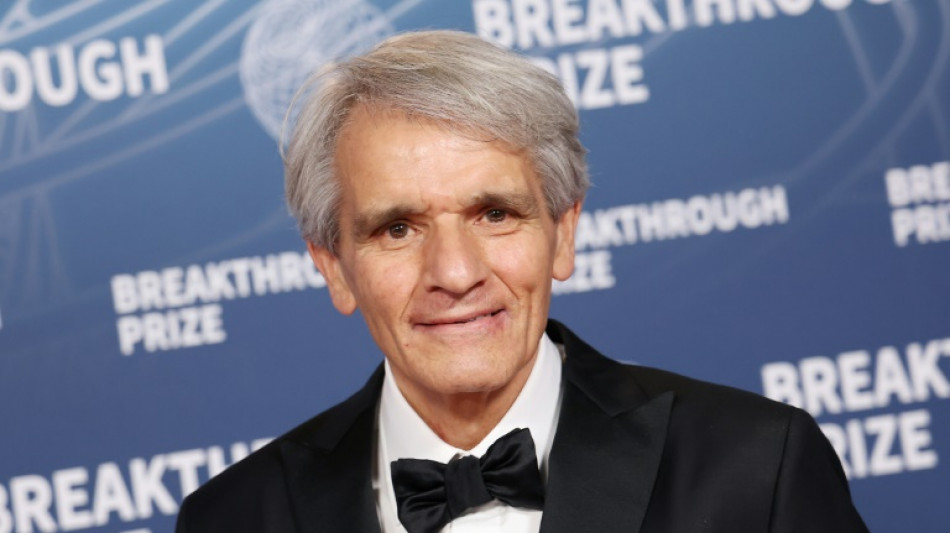
-
 Volkswagen posts 1-billion-euro loss on tariffs, Porsche woes
Volkswagen posts 1-billion-euro loss on tariffs, Porsche woes
-
'Fight fire with fire': California mulls skewing electoral map

-
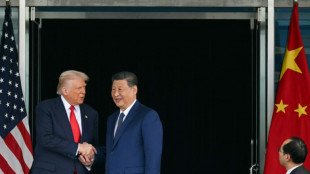 Fentanyl, beans and Ukraine: Trump hails 'success' in talks with Xi
Fentanyl, beans and Ukraine: Trump hails 'success' in talks with Xi
-
'Nowhere to sleep': Melissa upends life for Jamaicans

-
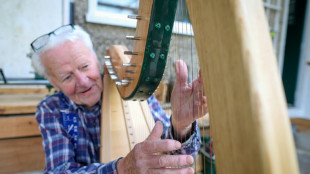 Irish octogenarian enjoys new lease on life making harps
Irish octogenarian enjoys new lease on life making harps
-
Tanzania blackout after election chaos, deaths feared

-
 G7 meets on countering China's critical mineral dominance
G7 meets on countering China's critical mineral dominance
-
Trump hails tariff, rare earth deal with Xi
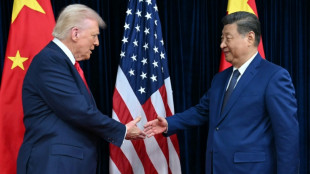
-
 Court rules against K-pop group NewJeans in label dispute
Court rules against K-pop group NewJeans in label dispute
-
India's Iyer says 'getting better by the day' after lacerated spleen
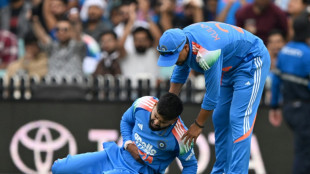
-
 Yesavage fairytale carries Blue Jays to World Series brink
Yesavage fairytale carries Blue Jays to World Series brink
-
Bank of Japan keeps interest rates unchanged

-
 Impoverished Filipinos forge a life among the tombstones
Impoverished Filipinos forge a life among the tombstones
-
Jokic posts fourth straight triple-double as Nuggets rout Pelicans

-
 UN calls for end to Sudan siege after mass hospital killings
UN calls for end to Sudan siege after mass hospital killings
-
Teenage Australian cricketer dies after being hit by ball

-
 As Russia advances on Kupiansk, Ukrainians fear second occupation
As Russia advances on Kupiansk, Ukrainians fear second occupation
-
Trade truce in balance as Trump meets 'tough negotiator' Xi

-
 China to send youngest astronaut, mice on space mission this week
China to send youngest astronaut, mice on space mission this week
-
Yesavage gem carries Blue Jays to brink of World Series as Dodgers downed

-
 With inflation under control, ECB to hold rates steady again
With inflation under control, ECB to hold rates steady again
-
Asia stocks muted with all eyes on Trump-Xi meeting

-
 Personal tipping points: Four people share their climate journeys
Personal tipping points: Four people share their climate journeys
-
Moto3 rider Dettwiler 'no longer critical' after crash: family

-
 US economy in the dark as government shutdown cuts off crucial data
US economy in the dark as government shutdown cuts off crucial data
-
Trump orders nuclear testing resumption ahead of Xi talks

-
 'Utter madness': NZ farmers agree dairy sale to French group
'Utter madness': NZ farmers agree dairy sale to French group
-
Samsung posts 32% profit rise on-year in third quarter

-
 30 years after cliffhanger vote, Quebec separatists voice hope for independence
30 years after cliffhanger vote, Quebec separatists voice hope for independence
-
Taxes, labor laws, pensions: what Milei wants to do next
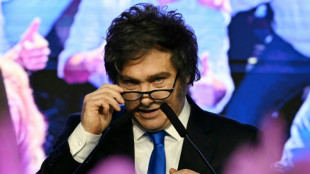
-
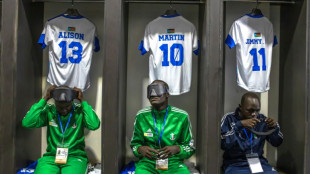 South Sudan's blind football team dreams of Paralympic glory
South Sudan's blind football team dreams of Paralympic glory
-
US says 4 killed in new strike on alleged Pacific drug boat
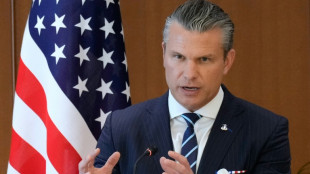
-
 What we do and don't know about Rio's deadly police raid
What we do and don't know about Rio's deadly police raid
-
'They slit my son's throat' says mother of teen killed in Rio police raid

-
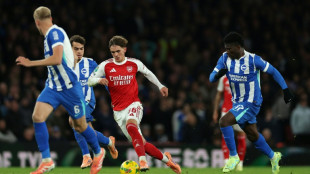 Arteta hails 'special' Dowman after 15-year-old makes historic Arsenal start
Arteta hails 'special' Dowman after 15-year-old makes historic Arsenal start
-
Google parent Alphabet posts first $100 bn quarter as AI fuels growth
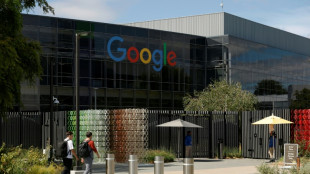
-
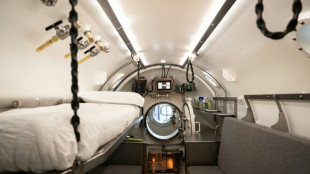 Underwater 'human habitat' aims to allow researchers to make weeklong dives
Underwater 'human habitat' aims to allow researchers to make weeklong dives
-
Maresca slams Delap for 'stupid' red card in Chelsea win at Wolves

-
 'Non-interventionist' Trump flexes muscles in Latin America
'Non-interventionist' Trump flexes muscles in Latin America
-
Slot defends League Cup selection despite not meeting 'Liverpool standards'
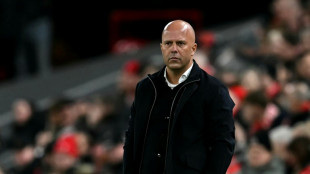
-
 'Poor' PSG retain Ligue 1 lead despite stalemate and Doue injury
'Poor' PSG retain Ligue 1 lead despite stalemate and Doue injury
-
Liverpool crisis mounts after League Cup exit against Palace
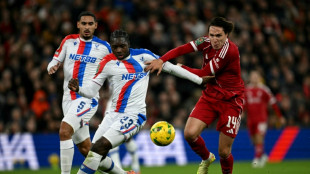
-
 Kane scores twice as Bayern set European wins record
Kane scores twice as Bayern set European wins record
-
Radio Free Asia suspends operations after Trump cuts and shutdown

-
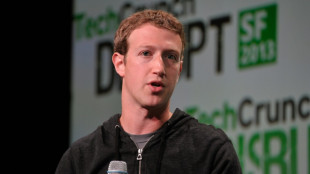 Meta shares sink as $16 bn US tax charge tanks profit
Meta shares sink as $16 bn US tax charge tanks profit
-
Dollar rises after Fed chair says December rate cut not a given
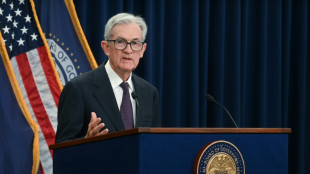
-
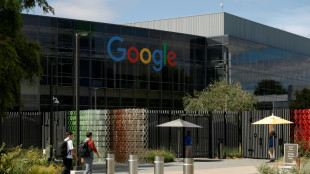 Google parent Alphabet posts first $100 bn quarter as AI drives growth
Google parent Alphabet posts first $100 bn quarter as AI drives growth
-
Rob Jetten: ex-athlete setting the pace in Dutch politics
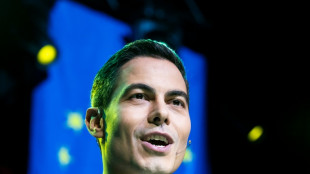
-
 Juve bounce back after Tudor sacking as Roma keep pace with leaders Napoli
Juve bounce back after Tudor sacking as Roma keep pace with leaders Napoli
-
Favorite Sovereignty scratched from Breeders' Cup Classic after fever
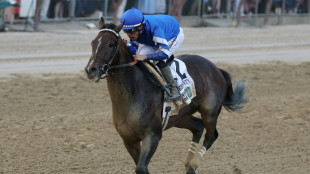

Research on multiple sclerosis wins 'Oscars of science'
An American neurologist and an Italian epidemiologist whose work revolutionized the treatment of multiple sclerosis on Saturday won a prestigious Breakthrough Prize, the award nicknamed the "Oscars of science."
Stephen Hauser and Alberto Ascherio were recognized for their decades researching the debilitating neurodegenerative disease, which affects nearly three million people worldwide and was long considered an impenetrable enigma.
Hauser's work on multiple sclerosis (MS) started more than 45 years ago, when he met a young patient named Andrea, "an extraordinarily talented young woman who was already an attorney" and working at the White House under then-president Jimmy Carter, he told AFP.
"Then MS appeared in an explosive fashion and destroyed her life," he said.
"I remember seeing her, unable to speak, paralyzed on the right side, unable to swallow, and soon, unable to breathe on her own, and I remember thinking that this was the most unfair thing I had ever seen in medicine."
Then 27 years old, he decided to make it his life's work.
- Rough road -
"At the time, we had no treatments for MS. In fact, there was also a pessimism that treatments could ever be developed," said Hauser, now 74 and director of the neuroscience institute at the University of California San Francisco.
Scientists knew the disease, which damages the central nervous system and leads to paralyzing cognitive and motor problems, was caused by the immune system turning on the body.
But they thought the white blood cells known as T cells were the lone culprit.
Hauser questioned that.
Studying the role played in the disease by B cells, another type of white blood cell, he and his colleagues managed to recreate the damage MS causes to the human nervous system in small monkeys known as marmosets.
The US federal body overseeing medical research dismissed the link as "biologically implausible," and turned down their application for funding for a clinical trial.
But Hauser and his team pressed on.
They persuaded pharmaceutical company Genentech to back testing. In 2006, they got resounding results: treatments targeting B cells were associated with "a dramatic, more than 90-percent reduction in brain inflammation," Hauser said.
It was "something of a scope that had never been seen before."
That threw open a door to bring new treatments to market that slow the advance of the disease in many patients.
But it also raised other questions. For example, what would cause our white blood cells to turn against us?
- The virus connection -
That was a question that puzzled Ascherio, today a professor at Harvard.
He decided to investigate why MS mostly affected people in the northern hemisphere.
"The geographical distribution of MS was quite striking," he told AFP.
"MS is very uncommon in tropical countries and near the equator."
That made him wonder whether a virus could be involved.
He and his team carried out a long-term study following millions of young US military recruits.
After nearly 20 years of research, they came up with an answer. In 2022, they confirmed a link between MS and the Epstein-Barr virus (EBV), a common infection responsible for another well-known disease, infectious mononucleosis, or mono.
"Most people infected with EBV will never develop MS," said Ascherio, 72.
But everyone who develops MS has had EBV first.
The discovery still did not explain why MS occurs. But it fuelled hope of finding new treatments and preventive measures for a disease that remains uncurable, and whose current treatments do not work on all patients.
Ascherio's breakthrough could also help treat other conditions.
"We are now trying also to extend our investigation, to investigate the role of viral infection in other neurodegenerative diseases, like Alzheimer's or amyotrophic lateral sclerosis," also known as ALS or Lou Gehrig's disease, he said.
The link remains theoretical for now. But "there is some evidence," he said.
"It's like where we were on MS 20 or 30 years ago."
L.Maurer--VB




